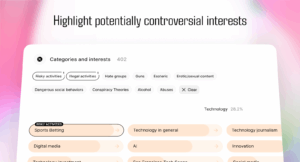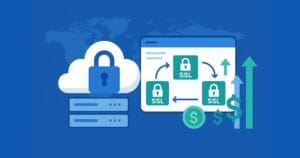Doctor, Can You Prescribe Me An App?
Key Takeaways
- The UK’s National Health Service (NHS) is considering a Kitemark scheme for health apps, which would certify their quality and safety. This move highlights the growing role of mobile technology in healthcare and the need for a guided selection process for health apps.
- The increasing number of health apps available can pose risks to users’ health and safety if not properly vetted. A Kitemark could help users distinguish between apps created by health professionals using medically tested tools and credible health information, and those that are not. The NHS has its own health apps library, featuring apps that have been reviewed by health professionals.
- America’s iMedicalApps launched iPrescribeApps, a platform that enables physicians to prescribe specific health apps to patients. The platform curates apps and devices using evidence-based criteria and expert opinion, and provides patients with detailed instructions on how to use their prescribed apps. The platform also allows patients to share their health tracking information with their physician, facilitating more effective health management.
In all seriousness, Mobile technology is changing healthcare. To the extent that the UK’s National Health Service (NHS) is hoping to introduce a new Kitemark for apps scheme, where apps will be accredited with the NHS logo.
What is a Kitemark?
A Kitemark is a service quality certification mark owned and operated by the British Standards Institution (BSI Group). It is frequently used to identify products where safety is essential, such as smoke alarms and crash helmets.
When we see the NHS mentioning a Kitemark for healthcare apps, it gives us two indications:
- The important role mobile technology is playing in our lives.
- That using a health app for monitoring someone’s health should not be taken lightly, and the selection of a health care app should be a guided process.
Quantity of apps
Specifically looking at Healthcare apps, there are now close to 100,000 related apps in the Android and iOS app stores (based on a 2013 report).
The risk with health apps is that they can have repercussions on the individual user’s health and safety.
If you are using a to-do app and you didn’t stick too it, or make an error in your to do list, there would be no harm to you, just some stress in catching up with late or forgotten tasks. But when it comes to health monitoring and treatment, the consequences may be far greater.
Because of this, a Kitemark is a means to provide quality control to the consumer drowning in the increasing number of health apps, allowing them to distinguish between apps which are created under the auspice of health professionals, diagnosticians and researchers who use medically tested tools and credible health information and those that could be considered the work of a charlatan or an enthusiastic well-meaning coach.
The UK NHS has its own health apps library, which features apps that are considered medically trustworthy and have been reviewed by health professionals. This means that a health professional can review the list with the knowledge that the information and strategies the apps provide are credible and then prescribe an appropriate app to their patient. Or an individual can choose an app to help them improve their own health and well being.
Doctors prescribe apps
America’s iMedicalApps wanted to take this further and decided to launch iPrescribeApps, a platform to enable physicians to prescribe the right app to the right patient.
iPrescribeApps is aiming to be a reputable and unbiased resource for guiding physicians and patients when they want to use apps for health management. This is distinct from an individual accessing a list of apps and self selecting one for their own personal use, rather the apps are recommended by a patient’s personal physician.
Once the patient is prescribed with an app or device, the patient will receive notifications from iPrescribeApps with detailed instructions (such as instructional videos) on how to use their prescribed app to improve their health. The interesting part comes at the follow up visits, where patients will be able to share their health tracking information with their physician, allowing the physician to manage their health effectively.
It is important to stress that through this platform, the health apps and devices prescribed will be curated using evidence based criteria and expert opinion by the physicians of iMedicalApps. In February, 2014, 250 physicians in the US were surveyed about their opinion on prescribing apps to patients. 42% of those physicians mentioned that they would not prescribe apps to their patients. The reason was, according to Quantia Inc’s website, is that there was “no regulatory oversight”.
Do you think prescribing apps could be as promising as it might seem? Do you think it would be practical to prescribe apps to patients? I Look forward to your thoughts.
Doctor and author focussed on leveraging machine/deep learning and image processing in medical image analysis.








